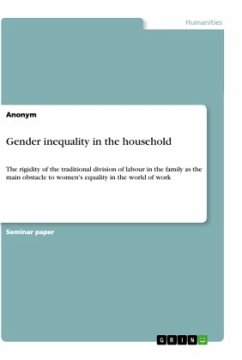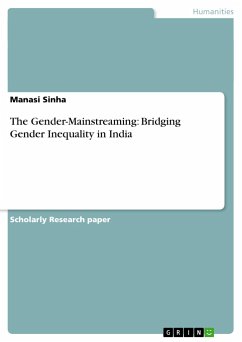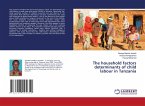Seminar paper from the year 2019 in the subject Sociology - Gender Studies, grade: 1,3, University of Tubingen (Institut für Soziologie), course: Applied Stratification Research, language: English, abstract: This paper focusses on the question whether and to what extent this still very prominent gender-specific role allocation in the household is related to or may have an influence on the unequal distribution of women in the labour market. And further, in which way it influences this distribution. In order to answer these questions, the current article is structured as follows: First, an overview of theoretical debates is provided on the basis of which hypotheses are formulated. Afterwards, the current state of empirical research is presented and discussed critically so that finally a conclusion can be drawn as well as implications be displayed.Gender inequality can be described as the socially constructed practices that attribute certain advantages or disadvantages to individuals because of their belonging to a certain gender category. It is a process that seems deeply rooted in history and can be based either on institutionalized notions of gender differences or cultural stereotypes. The main causes of gender inequalities at the macro level are social structures, especially labour market structures or, more specifically, the segregation of such. The causes of the difficulties that women face in career advancement are complex. However, the inequality to the disadvantage of women in occupational fields and positions can be particularly related to their role in the family. In middle-class societies, the man is usually responsible for paid employment while the woman takes over the unpaid private obligations of household chores and child education .
Hinweis: Dieser Artikel kann nur an eine deutsche Lieferadresse ausgeliefert werden.
Hinweis: Dieser Artikel kann nur an eine deutsche Lieferadresse ausgeliefert werden.








